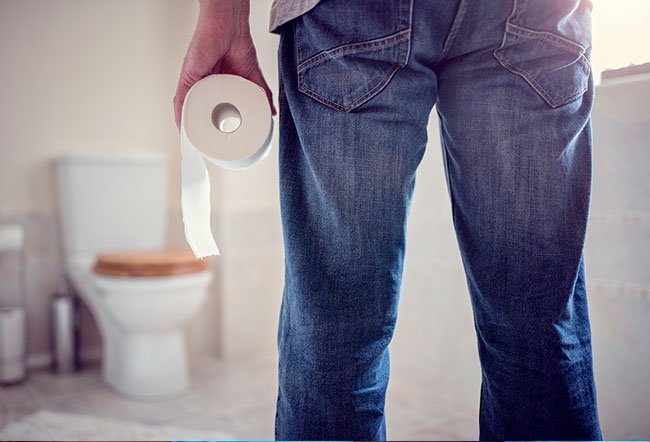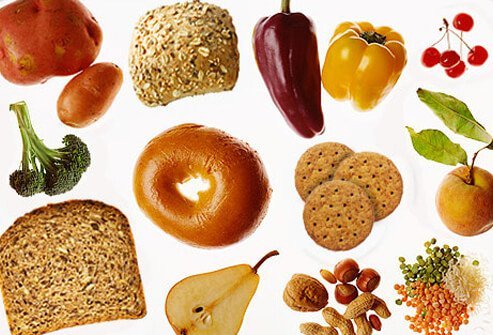
The color of your poop may indicate various ongoing issues in your body.
Green poop is often caused by the type of food you ingest. If you consume more green leafy vegetables, dark purple vegetables, and iron-rich foods, these may transiently stain your stools green. However, certain gastric infections or gut inflammation may also cause green poop.
Green diarrhea may indicate underlying serious issues. Therefore, consult a doctor if:
- Diarrhea lasts more than three days.
- There is watery diarrhea with or without mucus.
- Diarrhea is followed by severe discomfort and cramping in the stomach.
- Diarrhea is accompanied by vomiting for more than 24 hours.
- Symptoms of dehydration include dry skin, mouth, and lips, as well as reduced urine flow.
- There are any other alterations in your bowel patterns in addition to green diarrhea.
When should you consult a doctor immediately for green poop?
The color of your poop may indicate various ongoing issues in your body. You must seek immediate medical attention when there is a consistent change in the color of your poop and the poop is associated with various symptoms such as:
Gray or clay-colored feces, as well as yellow stools, may indicate pancreatic, gallbladder, or liver illness. These disorders require a thorough examination by a primary-care physician or gastroenterologist (a physician who specialized in diseases of the stomach and intestines).
6 medical conditions that cause green poop
Bile is a vivid green liquid secreted by the liver. It softens feces and is responsible for the brown hue of poop. Bile changes color as it travels through the intestines, from bright green to yellow to brown. Enzymes in the intestine chemically change bile pigments as they move through the gastrointestinal tract, converting the pigments from green to brown. Sometimes, bile may pass too fast through the intestines, typically remaining green, thus resulting in the green stool or green diarrhea.
There are several reasons why bile may travel excessively fast through the intestines. Some of the reasons may be more serious than anticipated and should be addressed immediately; they include:
- Infections: Green stool may be caused by parasitic, viral, or bacterial pathogens. Your body naturally has billions of microorganisms that serve an important function. However, various microorganisms that enter the body can damage your intestine, affecting its output. Bacteria such as Salmonella (the most frequent cause of food poisoning) and Escherichia coli, the water parasite giardia, and norovirus can cause your bowels to flush faster than usual, resulting in green-tinged feces.
- Crohn’s disease: According to the National Institute of Diabetes and Digestive and Kidney Diseases, Crohn’s disease causes inflammation in your digestive tract, most commonly in your small intestine and beginning of your large intestine. Diarrhea is a prominent symptom, and it may be green due to undigested bile. Other symptoms of Crohn’s disease include stomach discomfort, exhaustion, fever, weight loss, bloody stool, decreased appetite, and malnutrition.
- Ulcerative colitis: Ulcerative colitis is characterized by inflammation and ulcers in the digestive tract, most commonly in the large intestine and rectum. Along with diarrhea, you may feel stomach cramps, rectal discomfort, a strong desire to defecate, green color or bloody poop, weight loss, exhaustion, fever, and other unpleasant symptoms.
- Laxative misuse: Overuse of laxatives, especially daily, may increase your bowel movements, and time for breaking down the bile reduces. This leads to green poop.
- Pseudomembranous colitis: With prolonged use of antibiotics, the gut flora may be disturbed, and the bacterium Clostridium difficile may grow out of control. It releases toxins and disrupts the lining of the intestines, which leads to pseudomembranous colitis. Diarrhea caused by Clostridium difficile is often distinguishable. It is usually greenish and may be watery or mucoid. It could contain blood. Clostridium difficile–associated diarrhea is classified as mild to moderate, severe or severe complex for management.
- Intestinal cancer: Cancer in the lower gastrointestinal tract such as colon cancer can cause green or bloody or dark brown stools.
Bottom line
Poop color can range from light brown to dark brown, and yellowish-brown feces are common. Green stool is common in many people, including breastfed newborns, people who eat a lot of spicy food or iron, and anybody who has eaten meals that contain green color.
Green feces can be caused by an underlying illness, such as a significant intestinal infection or gut inflammation.
Consult your doctor if you have green stools and any of the other symptoms listed in this article. Seek emergency medical attention if you have more serious symptoms, such as blood or extreme discomfort.

SLIDESHOW
Super Tips to Boost Digestive Health: Bloating, Constipation, and More See Slideshow
Medically Reviewed on 6/22/2022
References
Stool Colors: https://www.webmd.com/digestive-disorders/what-do-different-poop-colors-mean
Stool Color Changes and Chart: https://www.emedicinehealth.com/stool_color_changes/article_em.htm
What Should I Do If My Poop Is Green? https://www.medicinenet.com/what_should_i_do_if_my_poop_is_green/article.htm